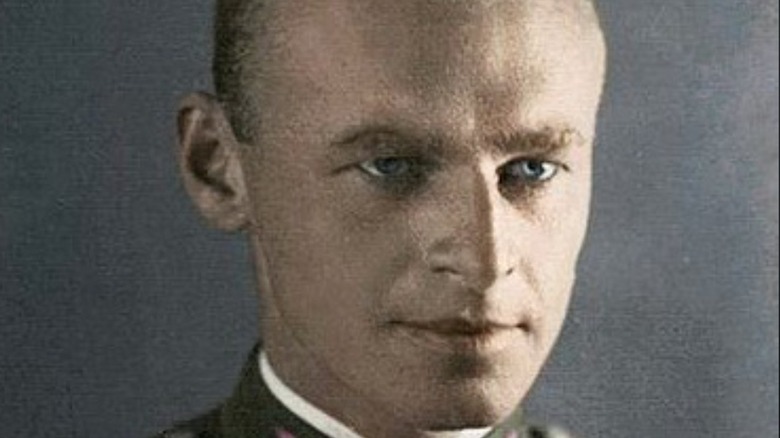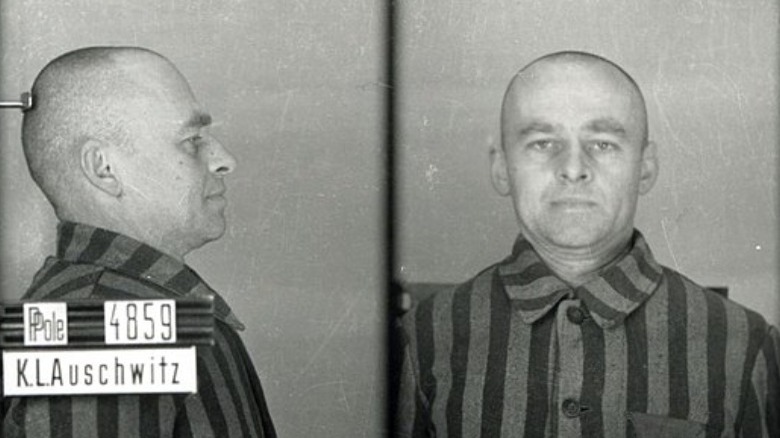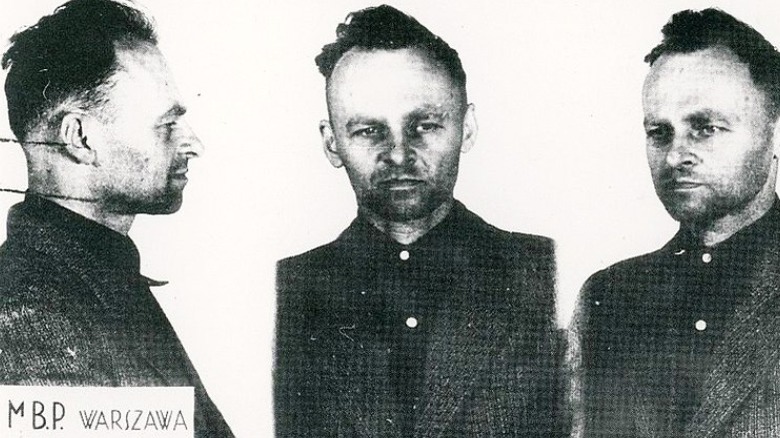One Man Volunteered To Go To Auschwitz. Here's Why
Poland was invaded by both Germany and Soviet Russia at the same time in 1939. The Germans set up a camp for prisoners of war, called Auschwitz, about 37 miles west of Krakow near the German border. Polish army captain Witold Pilecki knew they needed information about what was really going on inside the newly developed work camp. He wanted to understand its ramification for Poland, according to The New York Times.
There was only one real way to get first-hand information. Pilecki, once a member of the Polish army, now a member of the underground Polish resistance, decided he needed to infiltrate the camp, where he hoped to smuggle information out via a network of other members of the resistance. According to NPR, he eventually got his commanders to sign off on the secret mission, and ended up spending nearly three years as a prisoner and a spy.
During those years he managed to smuggle out correspondence that chronicled the evolution of the initial persecution of the Poles, then the Soviets, who Pilecki reported were the first to be packed together and gassed to death in 1940, per The New York Times, then later, the well-documented mass murders of Jews.
Pilecki wrote of the Jews, who the Germans started killing with toxic gasses in 1942, "Over a thousand a day from the new transports were gassed. The corpses were burnt in the new crematoria," The New York Times reported.
Pilecki's goal was to shut down Auschwitz
According to NPR, Pilecki documented such things as German methods of rationing food to prisoners in a way that they would die in six weeks after arriving at Auschwitz, and the way they let swaths of people starve to death. Though Pilecki was informing the underground army of the atrocities at the camp, it was hard for them to comprehend such horrors.
Alex Storozynski, president and executive director of the Kosciuszko Foundation, an organization that promotes Polish culture, history and education, told NPR, "The underground army was completely in disbelief about the horrors. About ovens, about gas chambers, about injections to murder people — people didn't believe him. They thought he was exaggerating."
But Pilecki's messages were getting through to exiled Polish leaders, who in turn were urging British and American leaders to do something to stop the camp from operating, to free the prisoners, according to what Storozynski told NPR. History would see England and the U.S. enter the Second World War, but their immediate goal was not to free prisoners from concentration camps.
Wiltold Pilecki survived the Germans but was killed by the Soviets
Pilecki managed his own escape in April 1943 when he and two other men ran from a bakery where they were assigned to work, a building that was not on the grounds of Auschwitz, according to The Atlantic. He decided it was time to make his escape so that he could make an impassioned plea in person for help in taking control of Auschwitz. His effort was futile though, as new Polish leadership declined to get involved, per The Atlantic.
In 1947 the Soviet communist party who were occupying Poland arrested Pilecki, charging him with espionage as he was once again working with the Polish underground resistance. Per NPR, Pilecki would be tortured, put on trial, then executed by the Soviets.
Prior to his death, as he worked in secret, he was often away from his family, so he wrote them letters. His son, Andrzej Pilecki, told The Atlantic the letters would say things like, "we should live worthwhile lives, to respect others and nature. He wrote to my sister to watch out for every little ladybug, to not step on it but place it instead on a leaf because everything has been created for a reason. 'Love nature.' He instructed us like this in his letters."
According to The Atlantic, the location of Pilecki's remains has never been confirmed.


